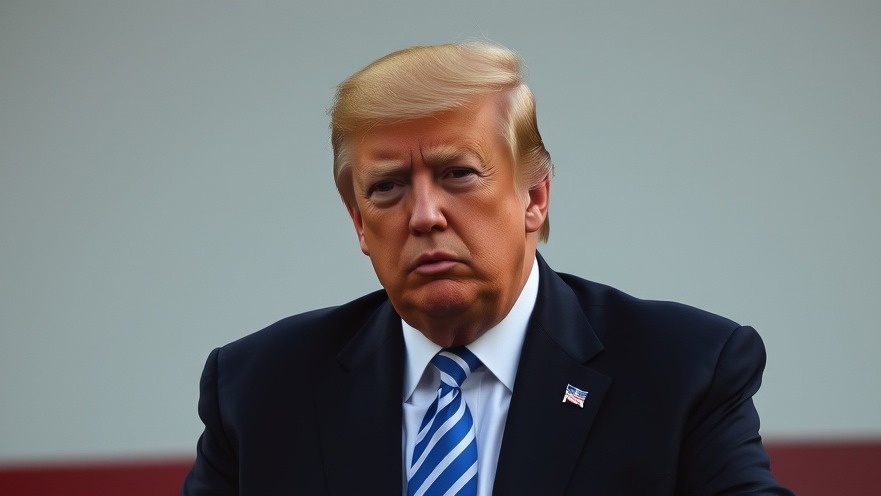
Trump's Controversial Approach to Chicago's Violence
In a recent exchange with reporters, former President Donald Trump characterized his proposal for federal intervention in Chicago as 'common sense,' dismissing the critical narrative surrounding his rhetoric as misguided. This statement came after a contentious moment where Trump took issue with how media outlets depicted his comments, specifically labeling his approach as a form of 'war' against crime.
The Chicago Crime Crisis: A National Concern
Chicago's gun violence and crime rates have been a hot topic over recent years, sparking heated debates among politicians and citizens. Trump's plan suggests increased federal involvement in local law enforcement and support for initiatives aimed at reducing crime levels. As reported, Chicago saw significant spikes in violence late last summer, prompting many to call for comprehensive solutions. Critics, however, warn that heavy-handed tactics may sidestep the deeper social issues driving this violence.
Understanding the 'War' Meme: Social Impact and Perception
Trump's use of inflammatory language has drawn both supporters and detractors, touching upon a broader cultural discussion about how violence is framed in American media. The 'war' meme illustrated by media and activists frames law enforcement strategies as militaristic rather than as preventive measures addressing root causes of crime. This has led to a polarized public perception, with some viewing Trump's rhetoric as tough and necessary, while others consider it dangerous and dismissive of the complexities inherent in urban crime.
Counterarguments: Differing Views on Policing Tactics
While Trump stands firm on his interpretation of these interventions as necessary, community activists and local leaders argue for a more nuanced approach. Many are advocating for resources to be allocated towards education, mental health services, and community engagement rather than solely increasing policing. This divergence raises critical questions about what effective solutions to violence really look like in cities like Chicago.
The Road Ahead: Future Predictions for Crime in America
Looking ahead, experts predict that discussions around violence and law enforcement will grow increasingly complex. As Chicago grapples with its identity and safety concerns, other major cities will likely face similar challenges. Understanding the implications of federal intervention and the potential backlash from communities will shape the discourse going into future elections and beyond.
Emotional and Human Interest Reflections
For residents living in affected neighborhoods, these discussions are far from academic. Personal stories of loss and survival often emerge in the wake of gun violence, highlighting the urgent need for collaboration among local governments, community organizations, and national leaders to create meaningful change. By emphasizing their human experiences, these citizens advocate for a safer and more supportive environment rather than one dominated by fear and conflict.
Decisions You Can Make With This Information
Understanding the landscape of crime and response strategies in cities like Chicago is critical for citizens. Engaging with local organizations focused on building community resilience and safety can empower individuals. Participating in discussions and initiatives is vital in shaping a more informed approach towards addressing crime on a national scale.
Moving Forward: A Call to Action
As the conversation evolves around crime in America, it is essential for communities to engage actively and critically with proposed strategies and interventions. Whether through local advocacy or national dialogues, every voice has the power to contribute to safer urban environments. Let's take a stand against senseless violence and work together towards solutions that protect and uplift all communities.
 Add Element
Add Element  Add Row
Add Row 



Write A Comment